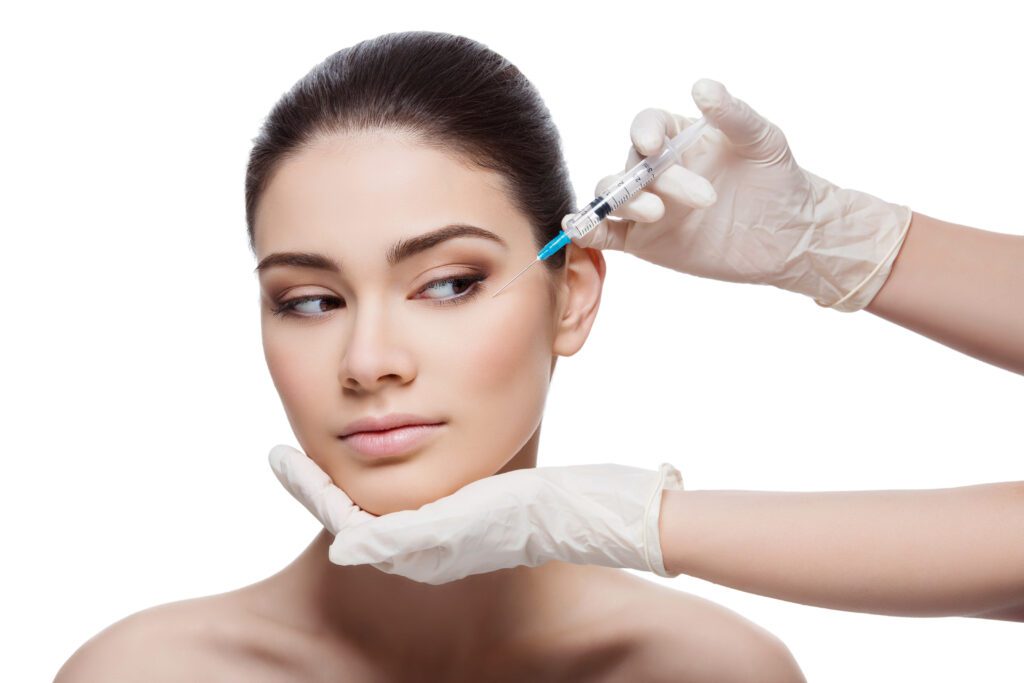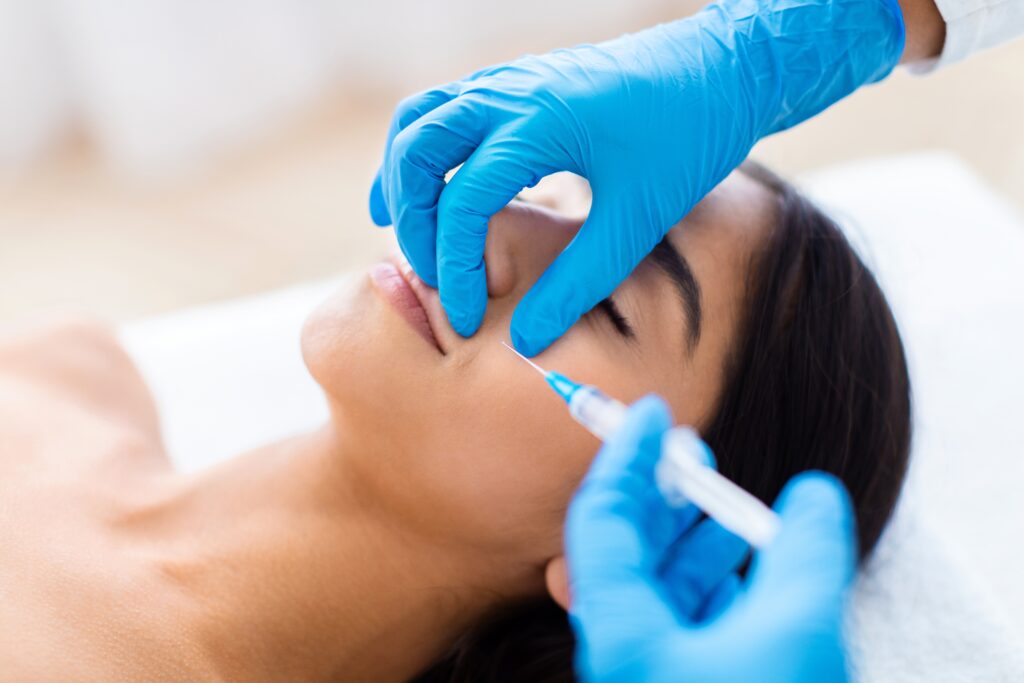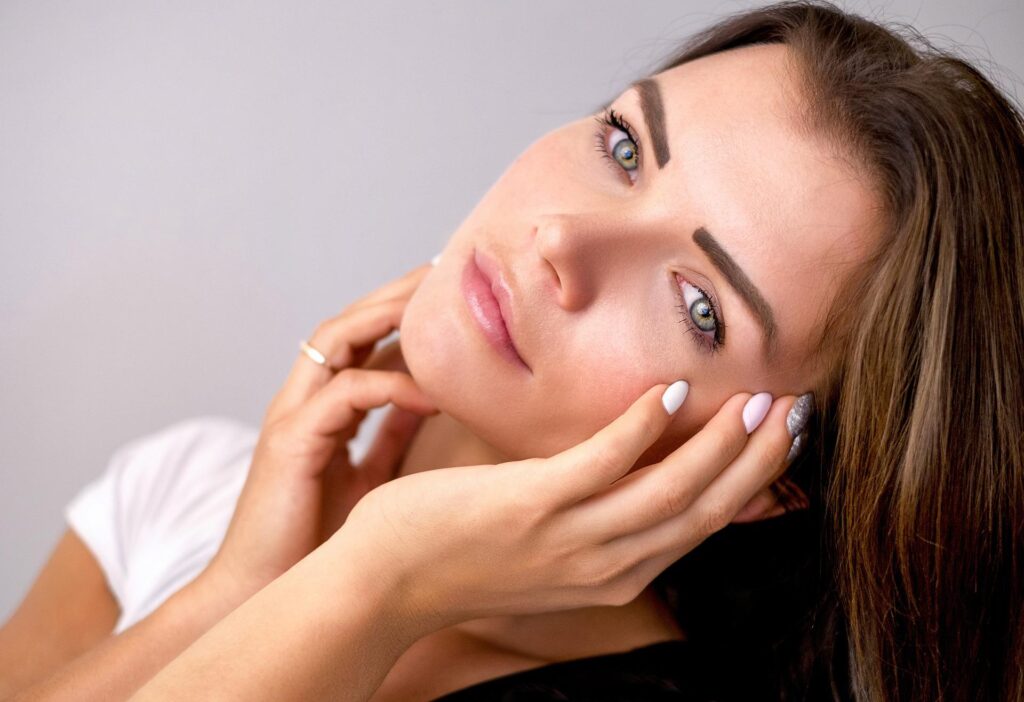To reduce or prevent the signs of aging without having surgery, many people turn to Botox®. Short for botulinum toxin, Botox® is a brand-name treatment used to diminish the appearance of fine lines and wrinkles.
Knowing more about Botox® and how often you can get treatments helps ensure it’s being used in the healthiest way possible.
It’s important to address two key questions before getting a treatment: How often do you need to get Botox® to maintain a youthful appearance? And how often is too often?
How Does Botox® Work?
Botox® contains a type of bacterium called Clostridium botulinum, which is a toxin that blocks the signals that travel from the nerves to the muscles. When injected into facial muscles with a fine needle, Botox® allows the muscles to relax and prevents facial expressions that cause wrinkles like frowning furrowing the brow.
When used for cosmetic purposes, Botox® offers the best results when treating:
- Forehead and lines between brow (11’s)
- Wrinkles around the eyes (crow’s feet)
- Lines around the mouth (marionette lines)
- Chin or Jaw (Masseter Muscles)
The results of Botox® treatment begin to appear within three or four days, but the full results are typically seen after approximately two weeks.
Although Botox® is well-known for its use as a cosmetic treatment, it has many other medical uses. Some common medical conditions treated with Botox® include:
- Chronic migraines
- Excessive sweating
- Eye problems like twitching and lazy eye
- Neck spasms
- Overactive bladder
How Long Are Botox® Treatments Effective?
Just like many things in life, the anti-aging effects from Botox are temporary. The results aren’t permanent because the body eventually produces new neurotransmitters, allowing the nerves to once again send signals to the muscles.
In most cases, the results from Botox® treatments last between three and four months. However, the time that it takes for Botox® to stop working can vary from person to person. Factors that affect how often you can get Botox® and how long it lasts include:
- Age: Botox® lasts longer in younger people because young skin has more natural elasticity.
- Wrinkle Depth: Botox® works better on fine lines than deep wrinkles.
- Treatment Area: Botox® typically works better and lasts longer when used on the forehead and the area between the eyebrows.
- Facial Expressions: Botox® results usually fade more quickly if you have very animated facial expressions.
- Exercise Habits: The results of Botox® often fade more quickly if you’re very active, like exercising five or more times per week.
How Often Should You Get Botox® Treatments?
For the best antiaging effects, most providers recommend getting Botox® every three to four months.
However, a 2011 study from Oregon Health and Science University (OHSU) showed that after two years of regular Botox® treatments, patients can reduce frequency and still enjoy positive results. At that point, a treatment every six months offers the same results as a treatment every three months.
One theory to explain this is that Botox® prohibits muscle use, which makes muscles smaller. Therefore, over time, it takes less Botox® to achieve the same effect.
Is it Dangerous to Receive Too Much Botox®?
Skilled and experienced providers know how much Botox® is enough for patients to look younger and more rested.
The right amount of Botox® opens up the eyes, defines the brows, and smooths fine lines and wrinkles without making the face look unnatural. Too much Botox® can have a number of unwanted effects, including:
- A frozen appearance
- An unnatural-looking arch to the eyebrows
- Heavy, hooded eyelids
- Droopy eyebrows
Although it rarely occurs in people who receive Botox®, excessive amounts can cause botulism, which is a poisoning of the body that can be fatal. Symptoms of botulism include:
- Body weakness
- Breathing problems
- Difficulty swallowing
- Problems with speech
- Trouble with bladder control
- Trouble with vision
Botox® patients who experience any of these symptoms should seek immediate medical help.
Although complications can occur with Botox®, it’s important to point out just how safe this cosmetic treatment is.
According to the National Library of Medicine, the Food and Drug Administration (FDA) only received 36 reports of serious adverse effects from cosmetic Botox® over a nearly 14-year period from 1989 to 2003.
How Do You Find the Right Botox® Provider?
It’s important for patients who are getting a Botox® treatment to feel safe and comfortable — whether it’s the first treatment or not. When searching for a trustworthy Botox® provider, the following should be considered:
- Ask friends, family members, and coworkers for recommendations.
- Research providers’ credentials and experience with Botox® treatments.
- Look for board-certified providers.
Choose a provider who is willing to meet with you and answer your questions.
Schedule a Consultation for Botox® Treatment at The Rejuva Center
If you’re looking for a provider in the Albany, New York, area, consider The Rejuva Center at Williams. Working under the direction of Dr. Edwin F. Williams, the medical staff at this facility benefit from the knowledge and experience of a double-board-certified facial plastic surgeon.
Specializing in non-surgical treatments, The Rejuva Center offers clinical excellence with kind and compassionate care. Call 518-213-9160 to schedule your consultation today.
Recent Posts

Reversing Smoking Damage to Your Skin
Smoking can cause significant skin damage, affecting both overall skin health and its appearance. However, smoking damage can be severe, but there are ways to reverse skin damage caused by…

Balancing Holistic Practices with Cosmetic Treatments
A holistic approach to beauty, including focusing on lifestyle, nutrition, and mental well-being, contributes to skin health as well as general healthiness. Combining holistic practices like these with the non-surgical…

Xeomin vs. Dysport vs. Botox Injections
Xeomin®, Dysport®, and Botox® are all injectable treatments that belong to a class of medications called neuromodulators that use the same main ingredient, botulinum toxin type A. When used for…

A Complete Guide to the Cosmetic Treatment Process: Start to Finish
Non-surgical cosmetic treatments are a great way to revive your look in a safe and effective manner, without the risks associated with surgery. Since 1999, The Rejuva Center at Williams…


